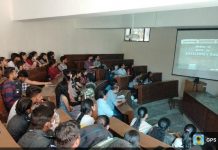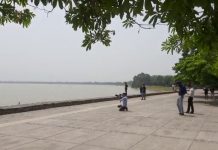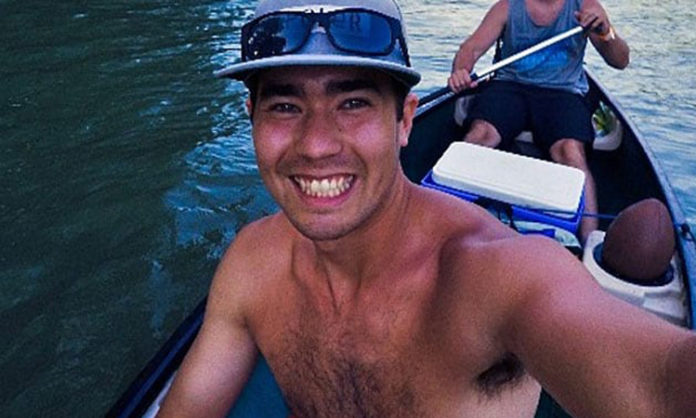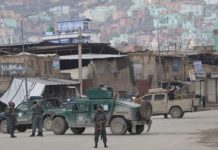On Instagram, John Chau came off like a carefree young adventurer – climbing mountain peaks and exploring jungles. But in reality, the missionary harbored a deadly obsession with an isolated tribe in India he’d first read about as a teen.
Chau spent years planning to travel illegally to remote North Sentinel Island on a mission to convert its residents to Christianity. Though he knew the islanders had long violently resisted outsiders, he conducted a covert mission to the protected island this month. Shortly after he arrived, the tribe killed him, and police say they have yet to recover his body.
The death of the 26-year-old missionary from Washington state – who broke a raft of laws and put the health of the indigenous people at risk – has sparked international outrage, a heated debate about the protection of tribal communities and at least two investigations by authorities in India. It also has prompted soul-searching in the U.S. evangelical community, which has been debating whether Chau was a martyr, was a fool or was afflicted by a messiah complex.
“God, I don’t want to die,” Chau scrawled in his journal while sitting in a fishing boat off the coast of the island where the North Sentinelese people live, shortly before he was killed. “WHO WILL TAKE MY PLACE IF I DO?”
Chau, easygoing and friendly, seemed like any other backpacker when he showed up at Remco Snoeij’s dive shop in 2016 on Havelock Island – in India’s Andaman and Nicobar island chain – and said he wanted to learn to scuba dive.
Chau’s time on the island, a diver’s haven, was largely unremarkable. He stayed in a house called Scubaluv, which was filled with “chattering geckos”; he swam with parrotfish and snapped pictures of blue coral for his Instagram account, which had 17,000 followers.
Yet Snoeij recalled that Chau seemed intently interested in the North Sentinelese tribe, which lived a Stone Age existence on a nearby island, protected by a 3-mile exclusion zone imposed by the Indian government. The tribe has long resisted outside human contact; when Indian helicopters flew overhead after the 2004 tsunami, members of the tribe fired arrows and threw spears.
Snoeij told Chau that the island was off-limits, but on dive excursions, he regaled the American with local lore – about the two fishermen who traveled to the island in 2006 and were strangled by islanders, about the rumors that the Japanese military had buried gold there during World War II.
“He shared a keen interest in researching and knowing more about them,” Snoeij said. “It must have struck a chord.”
What police now believe is that Chau was on a reconnaissance mission, one of at least three times he visited the area to learn how to circumvent military patrols and reach the island.
Chau had a “very meticulous plan to camouflage his expedition as fishing activity,” said Dependra Pathak, the director general of police for the Andaman and Nicobar Islands.
The son of a doctor who fled China during the Cultural Revolution, Chau had been fascinated with the outdoors since he pulled a dusty copy of “Robinson Crusoe” off his father’s bookshelf as a child, he told an online wilderness adventure journal. He later read the novel “The Sign of the Beaver,” about a boy who is left alone and guards his family’s log cabin with the help of a Native American friend.
That book “inspired my brother and I to paint our faces with wild blackberry juice and to tramp through our backyard with bows and spears we created from sticks,” Chau recalled.
In an email, Chau’s father, Patrick, declined to comment, saying the family needs peace.
Chau majored in sports medicine at Oral Roberts University, graduating in 2014, and he volunteered for soccer programs in Iraq and South Africa. He lived in a cabin for three summers in Whiskeytown National Recreation Area in California; at one point, he was hospitalized after being bitten by a rattlesnake.
A friend, John Middleton Ramsey, 22, recalls that in 2016, Chau stayed with him in Bellingham, Washington, and that the island in the Andaman Sea was much on his mind. Chau confided that he was avoiding romantic attachments because of his planned mission.
“He knew of the dangers of this place,” Ramsey recalled. “He didn’t want any hearts to get broken should something go wrong. He was very much aware of what he was doing. He also knew it wasn’t exactly legal.”
That year, Chau joined forces with All Nations, a missionary group based in Kansas City, Missouri, that sends Christian missionaries to 40 countries. The group provided him training and support, according to Mary Ho, its international executive leader. She was surprised by the “soft-spoken, very gentle young man” who had a very “radical call” to find “unreached groups.”
“You could see that every decision he has made, every step he has taken since then was driven by his desire to be among the North Sentinelese people,” Ho said. He planned to live there for years and hoped to learn their language.
Ho said the group was aware that Chau had traveled to India as a tourist, without the proper missionary visa, because missionary visas “aren’t easy to come by.” Ho insisted that Chau had not violated any laws, though authorities in India said he clearly did.
Brahma Chellaney, a professor at the Center for Policy Research in New Delhi, says Chau violated the country’s aboriginal and forest protection laws as well as cultural norms.
“He repeatedly trespassed on this island, and they lost their patience with him,” Chellaney said. “There is faith, and there is mental illness. . . . He didn’t understand the line between faith and doing something that’s absolutely nutty.”
Chau’s diary, which his family provided to The Washington Post, unfolds like the adventure novels he once read. He arrived in the Andamans on Oct. 16 and paid fishermen to take him by boat at night to the island on Nov. 14, evading the lights of patrols on the way. When the sun broke, Chau drew near the tribe. The women began “looing and chattering,” he wrote, and he was faced by men armed with bows and arrows. “My name is John, I love you and Jesus loves you,” he shouted before retreating.
The second day, he kayaked to the island and tried to offer the tribe small gifts – fish, scissors, cord and safety pins. A man in white with a crown, possibly made of flowers, shouted at him. He responded by singing “worship songs and hymns,” and the tribe fell silent. A juvenile fired an arrow at him, piercing his waterproof Bible. Chau fled on foot through the mangroves.
“Lord, is this island Satan’s last stronghold where none have heard or even had the chance to hear your name?” he wrote.
By the third day, he became convinced he was going to die.
“Watching the sunset and it’s beautiful – crying a bit . . . wondering if it will be the last sunset I see,” he wrote. He asked the fishermen to drop him on the beach. They returned the next day and saw the tribesmen dragging Chau’s body.
Those fishermen have been arrested, as has a friend of Chau’s who helped organize the boat trip. Police do not yet have a strategy to retrieve his body or confront the islanders, Pathak said.
Chau’s friends from the islands are still grieving and mystified by the whole episode.
“He lost his mind, definitely,” Snoeij said. “But ask any adventurer. You have to lose your mind a little bit, otherwise you don’t do it.”
(This story has not been edited by paigaam.in staff and is published from a syndicated feed.)




































